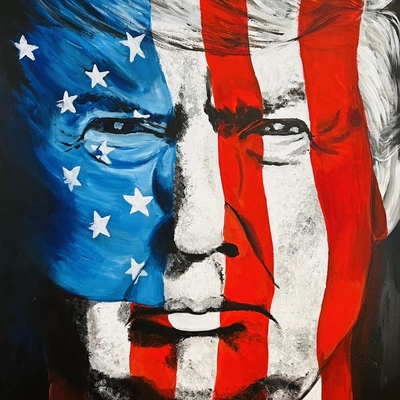Stay informed on the latest Truth Social posts from Donald Trump (@realDonaldTrump) without the doomscrolling. Consider it a public service for your mental health. (Why?)
- ObamaCare increased the cost of Healthcare.
- ObamaCare worsened the quality of Healthcare.
- The healthcare system under ObamaCare is broken.
- The broken system only rewards Insurance Companies.
- The broken system will not continue to be funded.
The post asserts that the healthcare system, identified as ObamaCare, is broken and rewards only Insurance Companies, stating it “won’t continue to be funded.” This explicitly signals a major policy shift targeting the healthcare sector, particularly insurance companies, which are large components of the S&P 500. Such a declaration creates significant uncertainty and potential for substantial regulatory and financial impacts on these entities, directly influencing market valuations.
The post focuses exclusively on domestic healthcare policy and contains no elements related to international conflict, foreign relations, or military actions.
- Commodities: The narrative does not directly address factors typically influencing commodity markets such as supply, demand from industrial activity, or geopolitical tensions, suggesting a minimal direct impact. Indirect effects from broader US economic shifts could occur, but are not explicitly implied.
- Currencies (Forex): A significant policy shift impacting the large US healthcare sector could influence the overall economic outlook and investor confidence in the US. This might affect the US Dollar Index (DXY) and related currency pairs (e.g., EURUSD, USDJPY) based on perceptions of future economic stability or fiscal implications.
- Global Equities: The primary impact is likely on US healthcare equities, specifically insurance companies, due to the stated intention to cease funding the current system. Broader US equity indices (S&P 500, Nasdaq) could experience volatility. Global equity markets (e.g., STOXX 600, Nikkei 225) might see indirect effects through shifts in global risk sentiment, but direct impact is not apparent.
- Fixed Income (Bonds): The declaration of not funding a major healthcare system could raise questions about future government spending, fiscal responsibility, and potential costs of alternative systems. This might influence US Treasury yields (10Y, 2Y) and credit spreads, depending on the perceived financial ramifications of the policy change.
- Volatility / Derivatives: Uncertainty stemming from a stated intent to overhaul a major sector's funding mechanism could lead to an increase in market volatility, potentially reflected in the VIX index, particularly for derivatives related to healthcare companies.
- Crypto / Digital Assets: The narrative does not directly relate to the drivers of cryptocurrency markets. Any impact on Bitcoin (BTC) or other digital assets would likely be indirect, flowing from broad shifts in risk appetite or US economic sentiment influenced by the policy change.
- Cross-Asset Correlations and Systemic Risk: The focus on a specific domestic policy area suggests a low probability of initiating widespread systemic risk or a breakdown in normal cross-asset correlations. Significant systemic impact would require the policy change to trigger broader economic instability or financial sector stress, which is not directly evident.
- Retail Sentiment / Market Psychology: The critical assessment of the current healthcare system and the directive to cease funding it could generate considerable discussion and strong opinions among retail investors. This might lead to focused speculation or increased trading activity in specific healthcare sector stocks, particularly those of insurance companies mentioned in the context of the 'broken system'.

